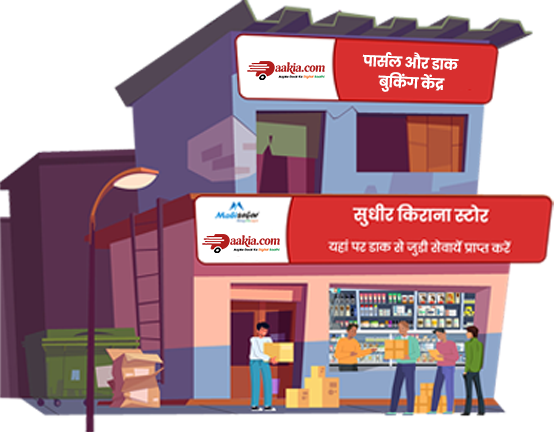

In today’s fast-paced business environment, seamless logistics is no longer a luxury—it’s a necessity. Across India, especially in industrially active states like Punjab, the demand for dedicated courier services that cater to businesses has been on the rise. This brings us to a powerful, underserved niche with vast potential: the B2B courier opportunity in Punjab.
While most people associate courier services with personal parcels or online shopping deliveries, business-to-business (B2B) logistics is a different ballgame altogether. It's about speed, consistency, and the ability to handle larger volumes and more complex requirements. And Punjab—with its booming industries, agricultural exports, and trading hubs—is ripe for a courier revolution tailored to B2B needs.
If you’re an entrepreneur looking for a sustainable, scalable venture, let’s explore why a B2B courier business in Punjab might just be your next big opportunity.
Punjab has always been a powerhouse of productivity. From Ludhiana’s garment and bicycle manufacturers to Jalandhar’s sports goods suppliers, Amritsar’s food processing units to Mohali’s IT sector—the state is a dense web of supply chains. Businesses large and small rely heavily on dependable logistics to keep their operations running smoothly.
In addition to domestic business exchanges, Punjab also sees considerable demand for interstate and cross-border logistics due to its proximity to Delhi, Haryana, Himachal Pradesh, and even international borders. All of this makes for fertile ground for specialized courier services designed for businesses.
Unlike B2C (business-to-consumer) logistics—where the focus is on individual packages—B2B courier services cater to commercial transactions. These might include:
B2B clients are often recurring customers. They require scheduled pickups, real-time tracking, and minimal delays. A B2B courier business that can deliver on these promises becomes a trusted partner—not just a service provider.
There’s never been a better moment to tap into the B2B courier opportunity in Punjab. Here’s why:
Small and medium enterprises (SMEs) are rapidly adopting digital tools and e-commerce, which requires efficient logistics support.
With initiatives like “Make in India” and startup-friendly policies in Punjab, there’s encouragement for logistics innovation.
The pandemic changed business logistics forever—emphasizing speed, hygiene, and contactless deliveries. B2B courier solutions that meet these new standards are in high demand.
Logistics tech platforms, third-party logistics (3PL) players, and courier aggregators are increasingly offering plug-and-play models for entrepreneurs.
Start by mapping your area. Who are the top manufacturers, traders, retailers, or institutions nearby? Understand what types of goods they send, where they send them, and how often.
You can either:
Platforms like Daakia.com simplify this process by connecting you to franchise opportunities that suit your budget, experience, and locality. Whether you want to serve Tier 2 cities or deeper industrial clusters, Daakia.com offers curated courier solutions you can explore with confidence.
For a B2B courier business, consistency is key. Ensure:
Businesses love transparency. Use software that allows customers to book, track, and receive invoices seamlessly. Good tech gives you a competitive edge, even in smaller cities.
In B2B, it’s all about relationship-building. Attend local business expos, network with chamber of commerce groups, and visit factories or trading centers directly. A personal pitch works better than a billboard.
Let’s say you start your B2B courier service in Ludhiana, focusing on textile exports. You build a client base of 10 regular manufacturers who ship 5–10 parcels daily. With average service fees of ₹100–₹300 per shipment, your earnings can quickly scale into a consistent five-figure monthly income—and that’s just the beginning.
The logistics space is evolving, and so should the people who operate in it. The B2B courier opportunity in Punjab is not just a business venture—it’s a high-potential ecosystem where small entrepreneurs can grow alongside thriving industries.
With the right approach, tech support, and industry partnerships, you can carve out a space that goes beyond parcels and packages. You can become the backbone of Punjab’s growing supply chain economy.
Whether you're ready to go solo or seek out a reliable franchise model, let platforms like Daakia.com guide your first steps. A few good clients, smart systems, and reliable service—that’s all you need to turn a simple courier idea into a solid business.



